Guernsey voting referendum: What are the options?
- Published
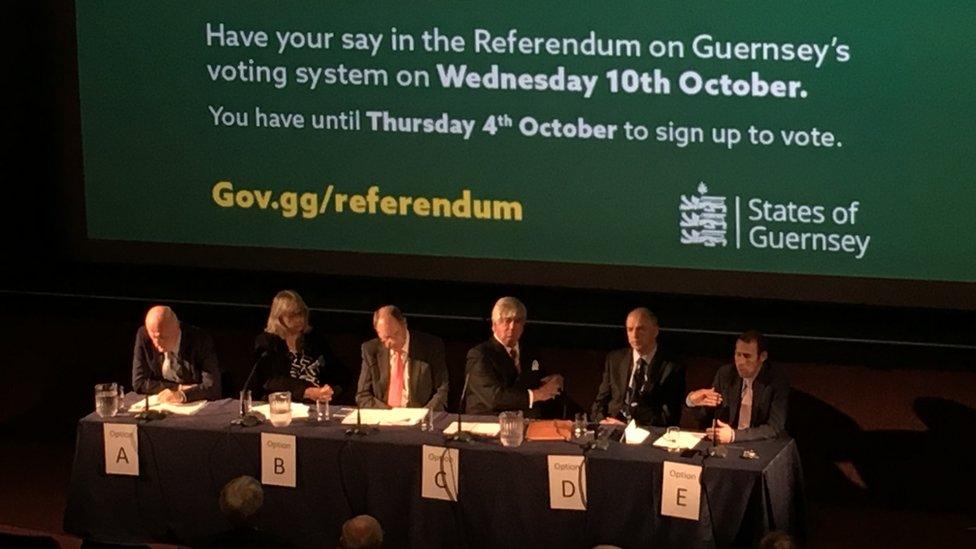
Guernsey hosted a debate on the five referendum options on Wednesday 3 October 2018
Voters in Guernsey go to the polls in the island's first ever referendum on Wednesday 10 October.
The vote could decide the method of electing politicians in future, with options ranging from the current district-based system to the formation of a single Guernsey-wide constituency.
The island's parliament has agreed to adopt the outcome, should a voter turnout of 40% be achieved.
So, what are the five options?
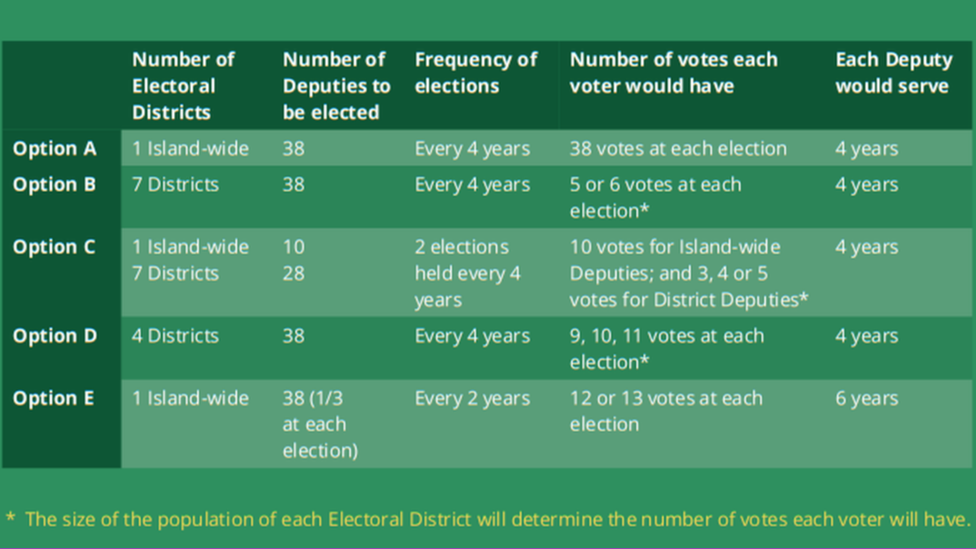
Voters will be able to rank up to five options in order of preference
Option A
Thirty-eight politicians elected island-wide, every four years.
Option A campaigner Deputy Peter Ferbrache said: "We are a tiny island, 63,000 people, 24 square miles - it is ridiculous that we have got seven different electoral districts, and there's no need for that."
Option B
Thirty-eight politicians elected across seven districts, every four years.
On option B, campaigner Caroline McManus said: "Our current system has produced the stable government so beloved of business, and avoided the disarray seen elsewhere, such as the UK when party members disagree with their leaders."
Option C
Ten politicians elected island-wide and 28 elected across seven districts, every four years.
Campaigner Deputy Chris Green said: "Option C is a healthy hybrid model that answers the demand for the voter to be able to vote for a significant number of favoured candidate standing outside of their electoral district, whilst preserving the ability to vote for local candidates from their own parish."
Option D
Thirty-eight politicians elected across four districts, every four years.
Spokesman Deputy Barry Brehaut said: "We can't run an island, a community, an economy on parish lines, but we can deliver under option D a system that is still connected to the core of our communities."
Option E
One-third of the 38 politicians elected island-wide, every two years.
Spokesman Deputy Matt Fallaize said: "Option E results in only one class of States member. Every seat would be filled by a deputy voted by the whole island. But it overcomes the biggest practical difficulties associated with island-wide voting."
- Published19 February 2016
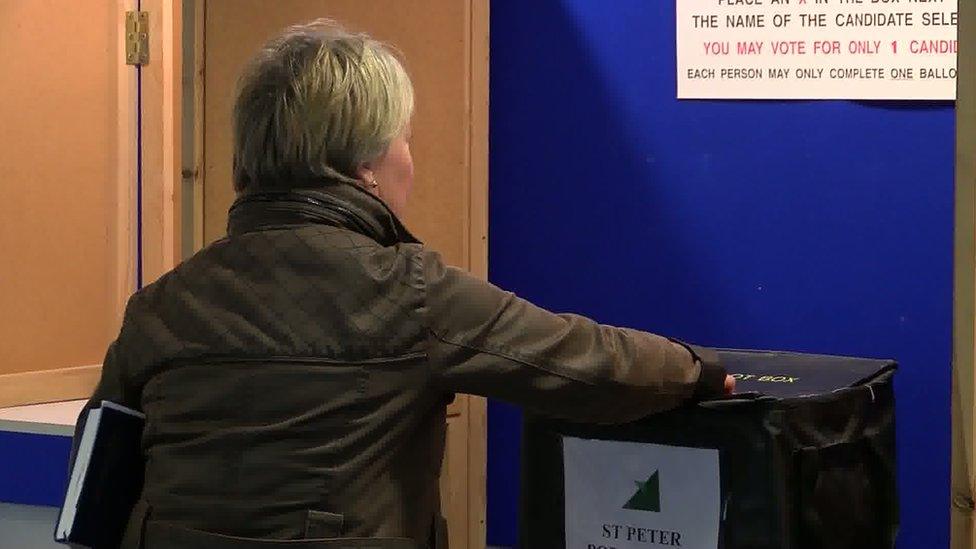
- Published10 June 2016
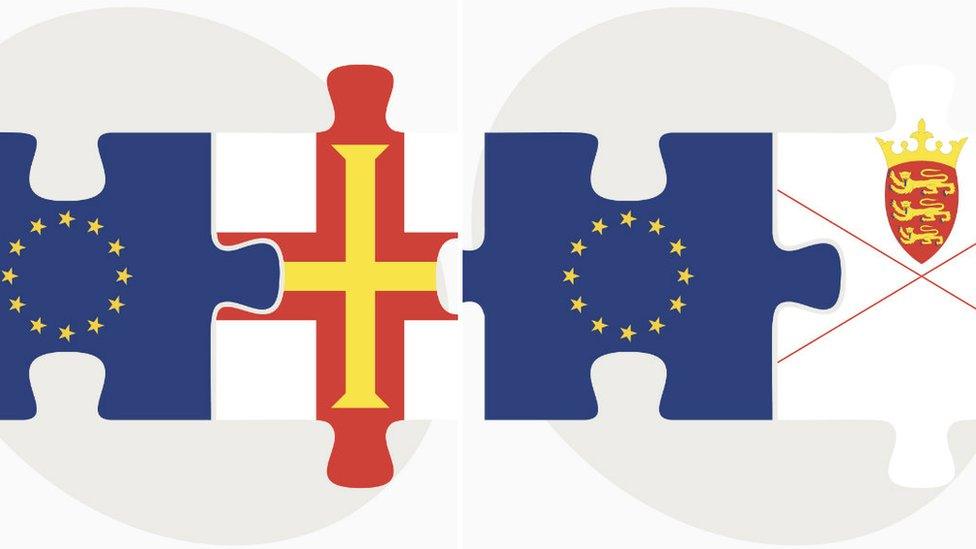
- Published22 February 2012
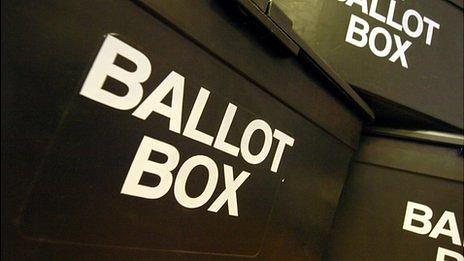
- Published6 July 2010